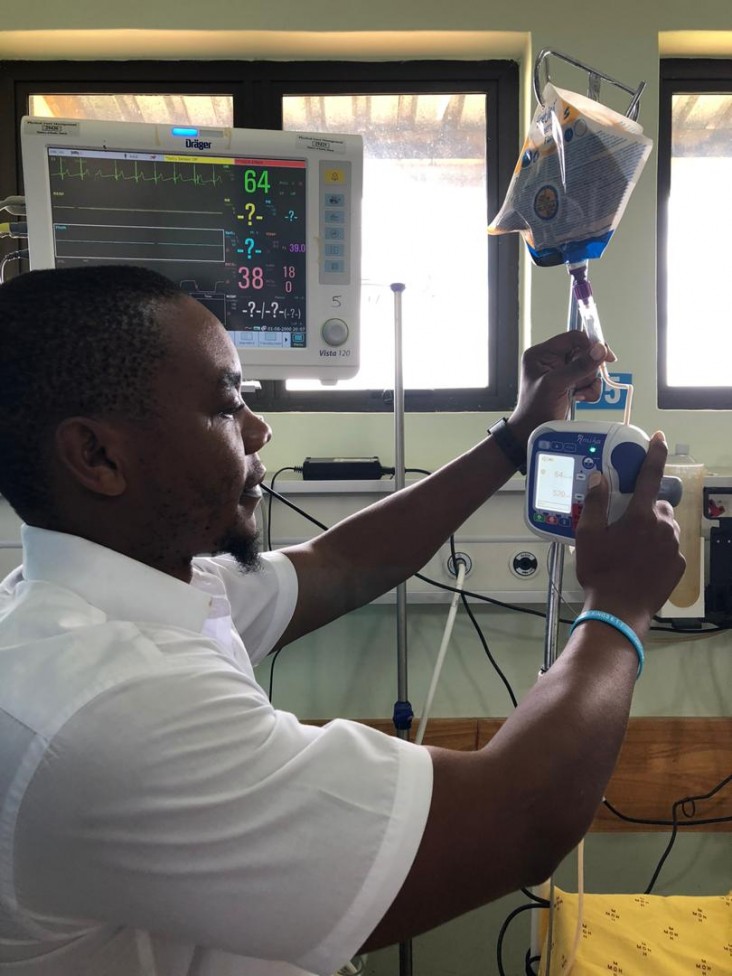Speeches Shim

In partnership with Malawian and U.S.-based academic institutions, USAID helped develop a postgraduate dietetics degree program, supported the government to establish 27 dietitian positions across all tertiary hospitals, and created the first dietetics department at Kamuzu Central Hospital.
In Malawi, dietitians have been historically absent from the health workforce, despite a pressing need for them, especially in intensive care units to monitor the nutrition status of critically ill patients. Malawi has also lacked national nutrition guidance for food service in hospitals, dietary recommendations to support chronic diseases, and proper nutrition training for doctors and nurses. Jonathan Misolo, a registered dietitian in Lilongwe, Malawi, was one of the first graduates to complete a newly implemented dietetics program.
The Government of Malawi identified the need for clinical dietitians as a key priority in its national nutrition strategy in 2010. In response to this priority, USAID partnered with the Government of Malawi, the Lilongwe University of Agriculture and Natural Resources, and U.S.-based Tufts University to develop and implement the first ever dietetics program in the nation. USAID also helped establish 27 dietitian positions across all tertiary hospitals in Malawi, through which these new dietitians are trailblazing a career path in clinical nutrition.
Soon after graduation, Jonathan realized the importance of his role to support the health and nutrition of critically ill patients. He also supports patients with chronic diseases, such as diabetes and hypertension, through diet monitoring and nutrition education and counseling.
“The greatest demand for my skills is in critical care nutrition,” explains Jonathan. “I am based in the intensive care unit and high dependency unit which has both adult and pediatric patients.”
Driving Locally-led, Lasting Change
Newly established dietitians, like Jonathan, also helped to implement new national dietary guidelines for hospital food service and provided nutrition education for doctors and nurses. After participating in a nutrition training, one nurse commented, “I came out of this training with a full understanding of what the consequences of underfeeding critically ill patients are, and what practices may be contributing to underfeeding in my unit. We urgently need dietitians to work with us on improving feeding practices.”
In just a short period of time, these registered dietitians are already changing the clinical nutrition practice environment in Malawi for patients and healthcare teams. Thanks to the dedication of the Government of Malawi to improved nutrition and the partnership with local and international academic institutions, USAID is helping to increase the national capacity of the health workforce and supporting Malawi on their Journey to Self-Reliance.
Download the PDF version of this story. [PDF, 1.5MB]

Comment
Make a general inquiry or suggest an improvement.